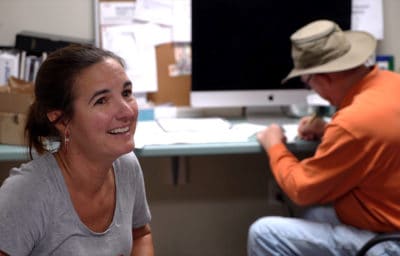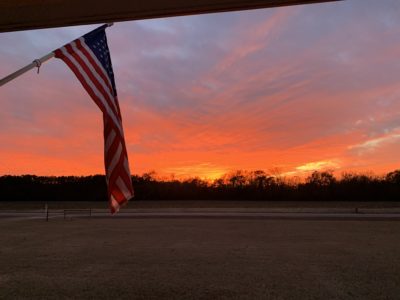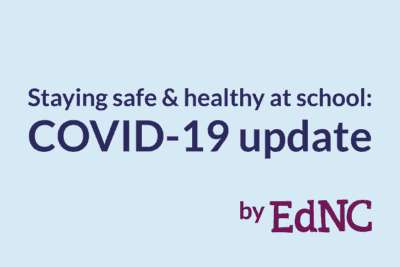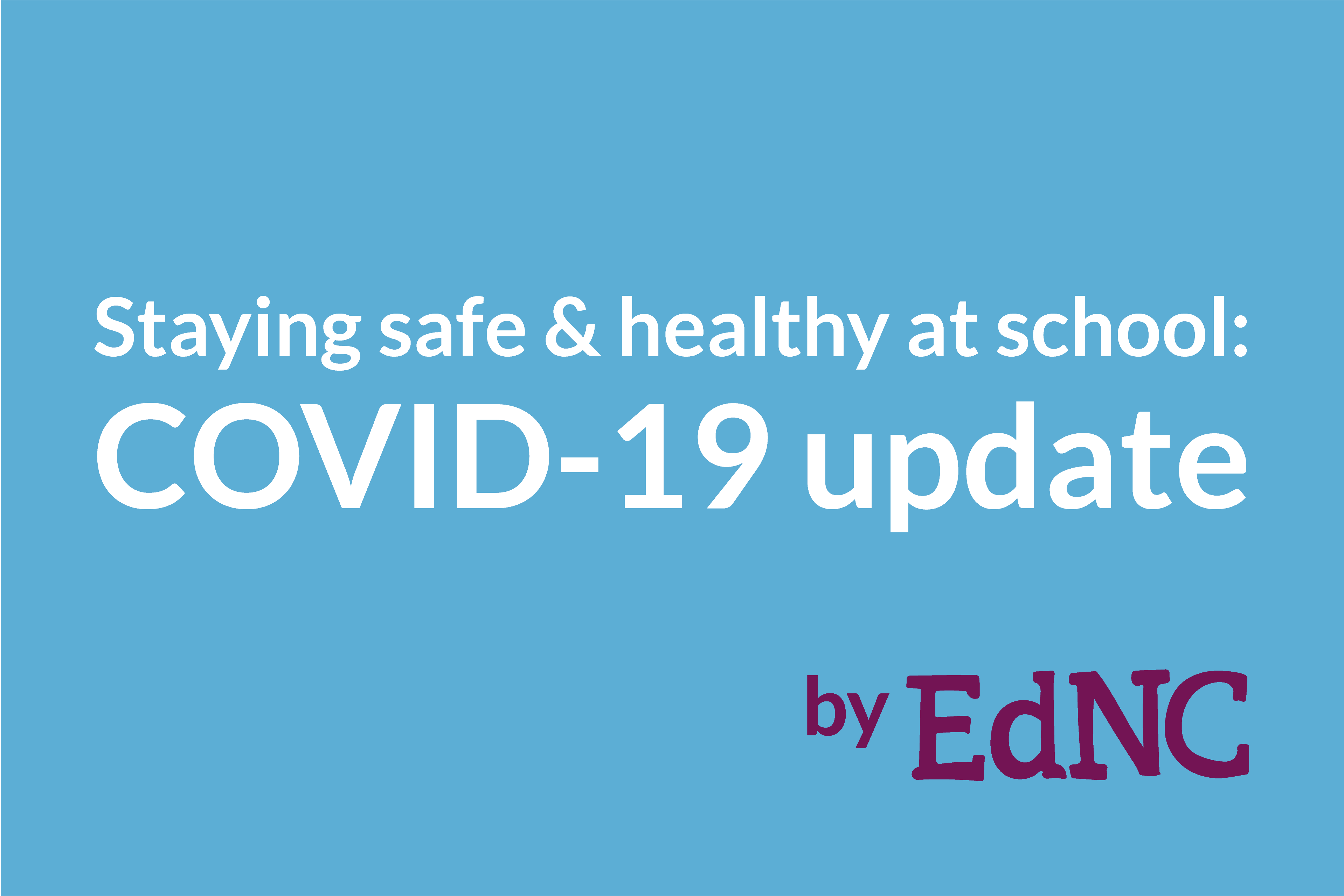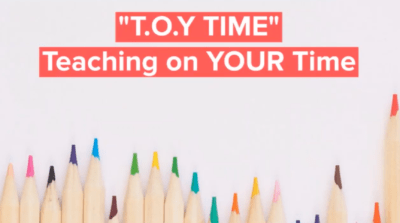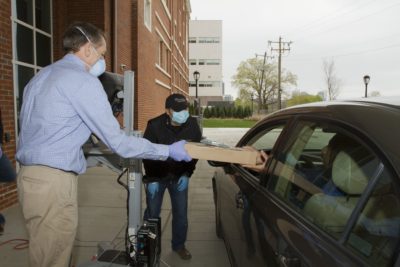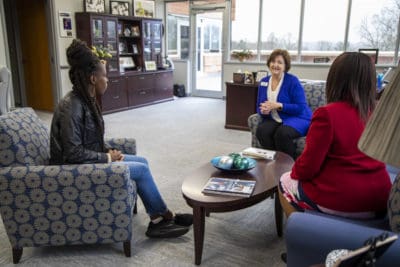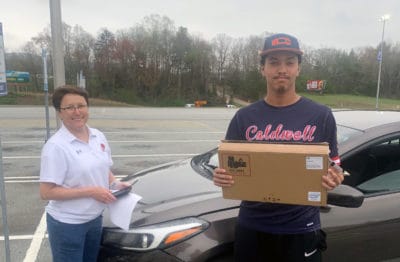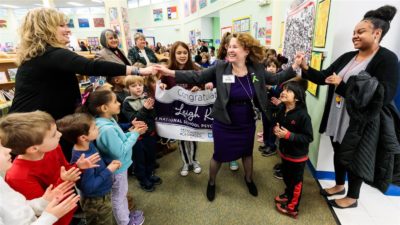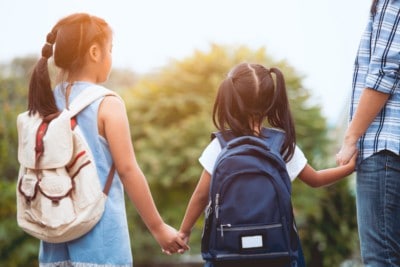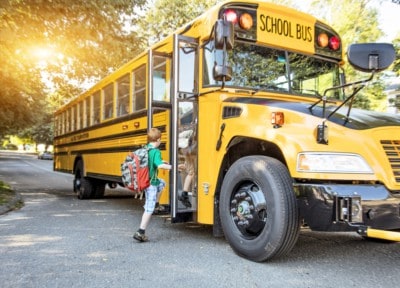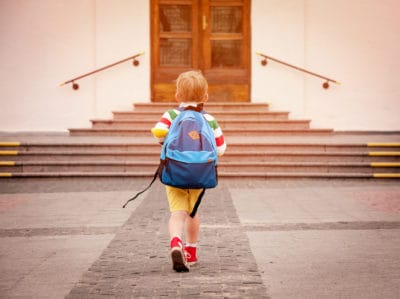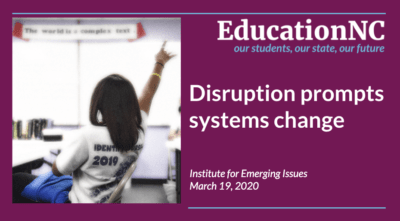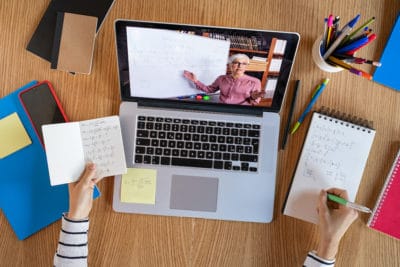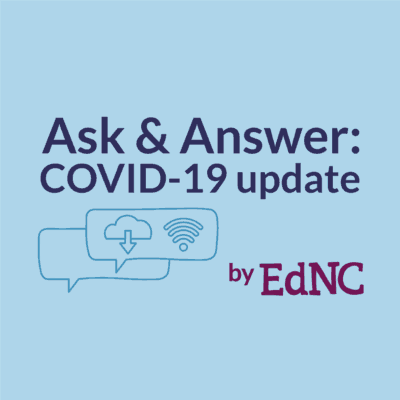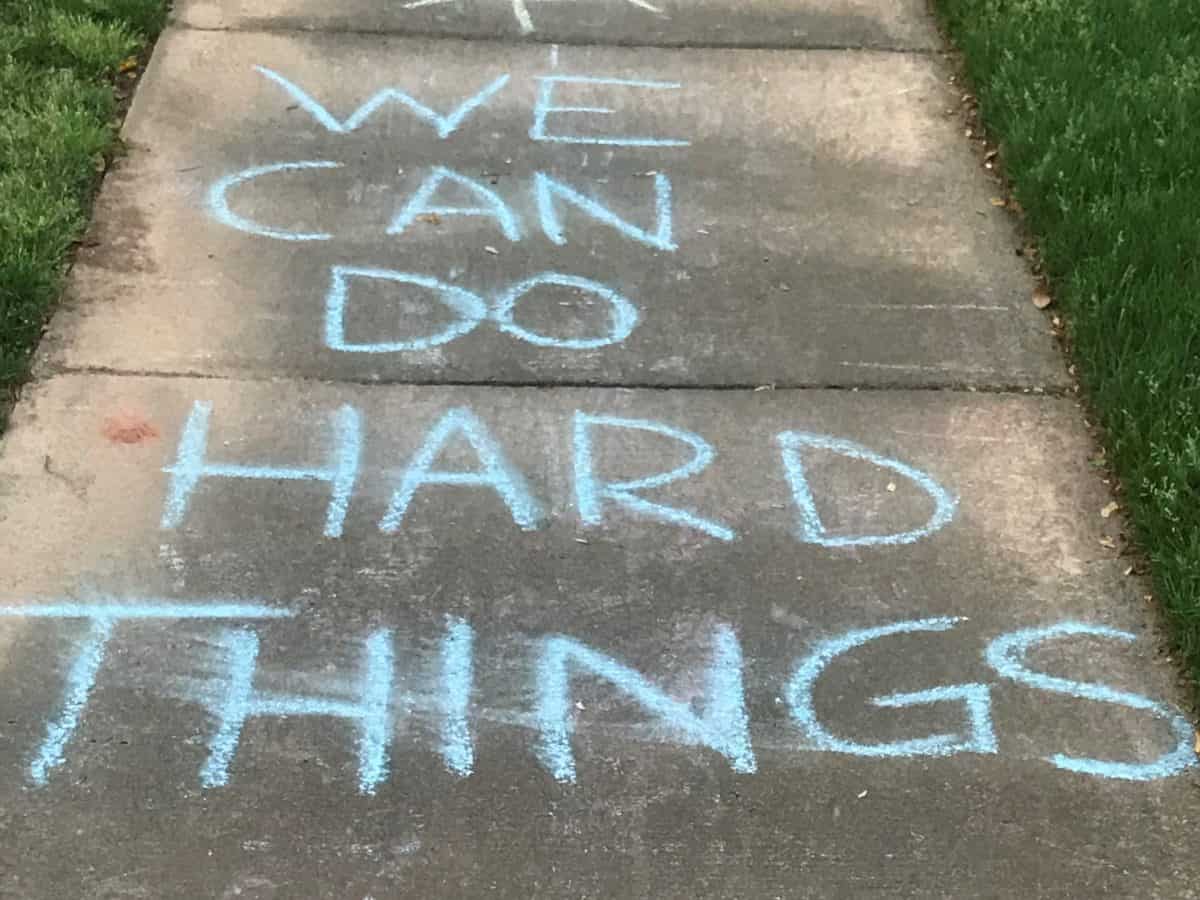

I often ask people when I am interviewing them, “What keeps you up at night?”
Here is what is keeping me up at night. 5,465 confirmed cases of COVID-19 in 94 of our 100 counties. 115 school superintendents, 2,687 school leaders, and 101,446 teachers facing the unknown. 1,556,384 students — too many of whom teachers can’t locate and many more who are in contact with educators but can’t access remote learning. The state budget and our economy. The census and the elections. And the people who find time for hate amidst it all.
Watching COVID-19 coming, for me, was a lot like watching the hurricanes head our way. Anticipating and then knowing bad things are going to happen to your audience — people you have come to know, respect, and love over the years — is just awful.
This was worse and even scarier because there were so many more unknowns, including the terminology. COVID-19 is “novel,” and it has a “curve” I’ve learned we really want to “flatten.” I am even more worried about the students and educators who may pass away and how we will honor them.
Then came the hackers who “zoombombed” our convenings with signs and words of hate. How dare you threaten the safe space we created for our students and educators, our philanthropists and policymakers?
A journalist asked me, “What are the most helpful things that education journalists can do to help their readers at this difficult time?” Our readers help us just as much, if not more, as we help them, especially in times like this. Here’s how.
Differentiating our coverage during crisis
At EdNC, many of the communities we serve are no stranger to disaster — from hurricanes to school violence — so we have learned along the way to balance ongoing coverage, coverage of the disaster with particular attention to meeting the information needs of our audience, and policy analysis of the issues surfaced by the news, ending each week with bright spots and hope.
Balancing our ongoing work and COVID-19
We’ve learned to document the systems change prompted by disasters. With this pandemic, we are tracking the balance of state guidance and local flexibility; how the size of the district impacts capacity to respond; the purpose of the school building in the 21st century; the changing roles of students, parents, teachers, and school leaders; and equity issues, including those exacerbated by remote learning. Thanks to FCC Commissioner Jessica Rosenworcel and her quick wordsmithing, “no child left offline” is the new “no child left behind.”
If you have ever been to our events, you may have noticed our team is behind the scenes. While you might find us outside shaking hands and welcoming folks (all before social distancing), we really do intentionally create these spaces to lift up the voices of others. While I am mindful that editors-in-chief need to be judicious regarding when and how to weigh in, in disasters I believe it is my job to be out front responding to our audience needs very directly. I also believe there is no one reporter, no one leader, no one organization, no one story that will meet the needs of our audience during a crisis. This requires all of us.
Listening and serving our audience
When we are out and about talking about leadership development, we often say the first lesson in leadership is to just start. So we did.
While we were making sure our team had personal and professional strategies in place to transition during COVID-19, Mary Willson, EdNC’s director of engagement, established two articles in the first week that are updated daily: one on the virus more generally and another on access to schools and community colleges. Caroline Parker started an article, also updated daily, featuring content curated by North Carolina’s teachers of the year.
Mary also wrote this article about the collaborative process Guilford County Schools used to create a comprehensive coronavirus preparedness plan early in our coverage that was picked up by The 74.
One unexpected challenge we faced is that so many of our photos used for featured images show people prior to the virus not engaged in proper social distancing, thus our move to a much heavier use of graphic images. Shout out to EdNC’s Carol Bono!
Long before coronavirus, we decided to try and be the best in the world at listening. We built a suite of tools — check them out — that we call Reach NC Voices. We use Reach to surface audience needs. Since the start of the pandemic, each Monday, Mary gives me a list of all of the audience questions from the week before gathered via text, social media, and through surveys embedded in our articles so I can make sure our coverage is aligned with their information needs.
Ask & Answer is a format we just started using in response to this pandemic as it became clear to me that our audience needed quicker access to primary sources — the executive orders from our governor, the changes to the policy manual from our State Board of Education — documents that are redefining the contours of their lives.
Ferrel Guillory says, “reporters have an important role in translating, sense-making, information-gathering.” I think readers, in addition to reporters, need to be able to assess how changes in policy will impact and change their lives. We are embedding the sources in the articles using Slideshare so our audience can see them and read them themselves.
In our coverage of community colleges, we have focused on identifying the most pressing issues, how presidents are tackling the issues, and solutions emerging to share statewide.
EdNC’s Alli Lindenberg launched a podcast, Hope Starts Here, to surface stories of hope.
Our users and page views both increased by more than 30% in March, and the open rate of our daily digest newsletter was between 25% and 40% each day.
Embracing the power of ‘we don’t know’
So many questions, and so much we don’t know.
One of the hardest questions we have received since the start of the coronavirus pandemic is, “What about our seniors? What about our seniors who were born in the time of 9/11 and are graduating in the time of coronavirus?” The EdNC team collectively wrote an open letter to the Class of 2020 to respond.
But this question, and realizing how little right we had to even try to answer many student questions, is leading us to partner with a student newspaper.
Another reader question has led us to partner with a school psychologist.
Serving our ESL audience has led us to partner with an ESL teacher to determine which articles to translate.
Many thanks to our teachers of the year for taking the lead in leading us through this time.
In addition to the ongoing partnership work EdNC engages in when things are business as usual, we are trying to support all of our education partners during the COVID-19 pandemic. That means saying yes as often as possible with the caveat that if members of our team or their families get sick, then we will need grace and understanding as we continue to pivot and iterate. Here are some examples…
We are working with the Leslie Boney and his team at the Institute for Emerging Issues as they continue their work around access to broadband and technological innovation.
We are working with Bryan Hassel and his team at Public Impact to create a database on remote learning for all 115 of our districts for the national database created by the Center for Reinventing Public Education.
We are working with Ann McColl and her team at The Innovation Project on the role of parents in teaching and learning during coronavirus and going forward.
Supporting our team
While the work of journalists has been deemed “essential” during the coronavirus, we know the work we are called to do won’t happen if we don’t take care of our people first.
Our team is experiencing many of the challenges and opportunities, lows and highs you all are. Nancy’s mom passed away. Mary got married! Analisa is home in Florida with parents and sisters. Eric is navigating being in the sandwich generation. Rupen, with two school-aged boys, is learning an all new normal. Taylor’s baby is the highlight of our team calls!
For our whole team, we are providing stipends in April and May to pay for therapy or any other wellness needed to be healthy personally and professionally during this time. Thanks to Analisa for including yoga poses in our team emails on Fridays and for teaching us how to use Zoom.
Which brings me to random acts of violence
During COVID-19, EdNC is using Zoom for internal meetings, external meetings, and convenings. We’ve been partnering with teacher leaders to create safe spaces for brave conversations about moving from crisis to transformation.
Check out Principal Donnell Cannon chart the way forward for us in this video from the first convening:
And then in our second Zoom convening with 84 students and educators from across the state, when a student started her presentation, the call was hacked, and all of a sudden a swastika appeared on her slides and the worst racist words filled what we intended to be safe space. And in that moment, security became my top priority.
In the interest of transparency, here is the text of the email I sent to participants on the call after the attack:
To all of our students, educators, policyshapers, and philanthropists who joined us on today’s call –
If
we haven’t met yet, I’m Mebane Rash, the CEO of EdNC. When we launched the
event series you were on today, we wanted to create a collaborative space that
is yours to lead in, find support, and meet others doing vital work for our
state during the COVID-19 outbreak.
It will haunt me for a very long time that early in the call today I sent a
message to the group via chat that said, “This space is for you.”
I don’t do well with hate. Images and words of hate trigger me. I have spent much of my life working to create safe spaces – first for battered women as a young professional and now for you. Today, I failed.
The bravery you showed in coming back to the call and continuing the conversation gives me hope. A huge shout out to our students who showed us the way forward today. It is not lost on me that you face hate on all too many days.
There is an article by Yuval Noah Harari about what the year 2050 has in store for us, and in it he writes, “You cannot learn resilience by reading a book or listening to a lecture.”
In our collective learning of resilience, let’s use this time – more broadly because of COVID-19 and more specifically because of our call today – to support our students in changing education and the world as we know it.
We are working to find a secure option to meet in, and you’ll hear back from us about future conversations. We are committed to you, now and always.
A student responded, “I’m a black boy in NC. It is sad but true that these words and judgment are my reality. I just want to be a voice to break molds and stereotypes to prove that all cultures matter and shall have a voice in the future even in terrible times.”
An educator responded, “Sadly, we recognize that what happened is part of the world where many of our students try to live and where we teachers must ply our craft.”
In the four days following the attack, we worked to identify our security issues and choices: understanding the different platform options for meetings/convenings; the difference between account and meeting/convening security settings; the implications of making the date and time public; the importance of using a random meeting ID (don’t share it publicly) and sending out the password via separate email just prior to the meeting/convening; understanding how and why to have participants register on the platform you are using for the meeting/convening; the need to place all participants on mute; not allowing the sharing of screens, annotations, or virtual backgrounds; breakouts offer virtually no security; the hosts need to make sure software is updated; how to disable private chat; how to suspend public chat; how to identify and remove hackers; the difference between hosts and co-hosts; the different types of attacks (targeted v. dark web); why not to use waiting rooms and instead to wait and start the meeting until the host has joined; locking down the meetings once underway; and how to record and document virtual meetings/convenings.
They don’t teach this in law school, y’all.
Yesterday, we retained a security firm to help us moving forward, and as we learn more about how to secure virtual meetings and convenings, we will continue to share what we learn with you.
While we will do everything we can to make these spaces safe, we will not let acts of violence silence you or us. Mary will be announcing in the next couple of days when our convening series with educators will resume.
Nation and Eric are partnering with the News & Observer and our teacher of the year Mariah Morris and former principal of the year Tabari Wallace on a conversation with a wider audience about how schools teach and how students learn. You can sign up here for the 60-minute Zoom conference on Monday, April 27, 2020.
Thank you for walking with us as we take this crisis and use it to transform the future
I was recently asked how EdNC would measure success during COVID-19. But “success” is not how my mind is oriented during this crisis.
I hope a vaccine is widely available a year from now or sooner. I hope we continue to enjoy the privilege of doing this work a year from now. I hope our team is intact a year from now. I hope our work has served our readers’ information needs a year from now. I hope our work will have “inspired and motivated” others in the media industry, as Rupen said to me yesterday. I hope our collective work will have pointed the way forward for our students, our schools and community colleges, and our state.
Principal Marcus Gause said in an interview with EdNC recently, “Nobody is asking about a political party… we are just trying to make sure everybody has the basic necessities of life, which is something I hope we will be able to consistently move forward with.” I hope our people continue to be more important than politics.
Please let me know what’s keeping you up at night. And please let me know what we can do differently, what we can do better. You can email me at mrash@ednc.org.
I hiked Easter morning to a cross hidden in the woods of the North Carolina mountains I call home. Not many people know about it. On the cross, it says, “A place called grace.” That is what I find this time requires.


